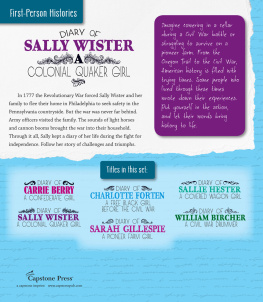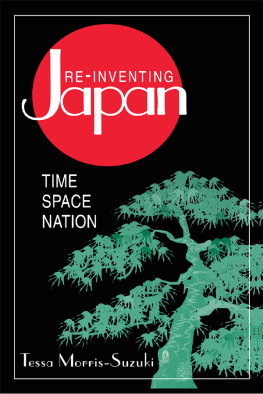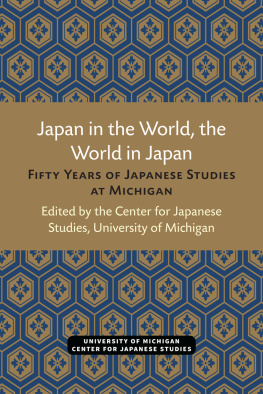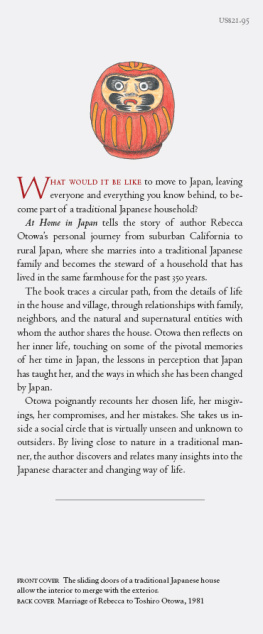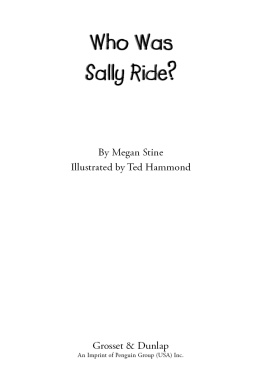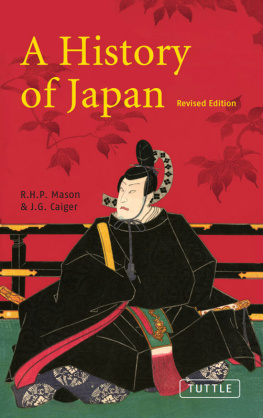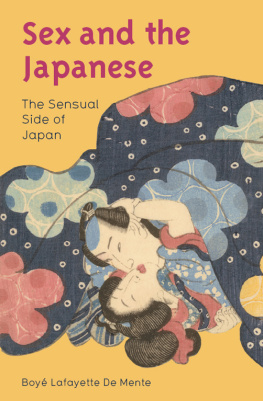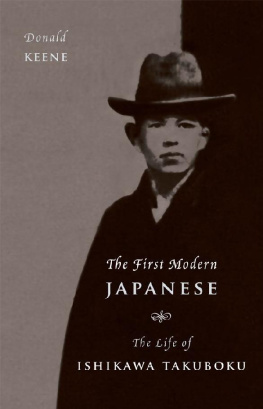The Emperors Orphans
by
Sally Ito
This book is dedicated to the
Saitos and Itos of my past, present and future.
Preface
W hen I was in my forties, a Mennonite writer gave me a lift home from a meeting. As we were driving down the darkened elm-lined trees of my neighbourhood, we spoke about writing. At one point, I said something like, I write to find my cultural identity. When those words came out of my mouth, it was like blurting out a truth that had remained a mystery to me all the years I had been a writer. The effect of it on my psyche was strange: I felt intense relief but also disappointment. It was like I had inflated a balloon only to have found, while tying it up, that Id let go of the whole damn thing.
Release.
If I were a more enlightened being, I would have been freed by my words. The self-absorbed work of finding out who I wasfor that, ultimately, is what a search for identity entailscould suddenly be terminated by the naming of the quest. Except, the quest wasnt over yet. Things were happening within my family that revealed ever stranger and unhappier truths about the consequences the war had on usthere was damage and losswhich would percolate through generations to me.
The people who formed me came from a rich culture of complexity and beauty. As does everyone, because culture is being enacted everywhere through rituals, traditions, performances, events, and especially in writing.
Writing was a thing I loved to do, and which I was also trained to do. The trained part of me, after years of practise, saw writing in compartmentalized categories. You wrote poetry or prose, you wrote essays or scripts. Whatever came out in words had to submit to form; this rule was a necessary discipline in my development as a writer.
But often in art, the form of something arises organically out of its creation. The writer is a lump of clay waiting to find form at the beginning of their life in language. Writing ones story is a becoming of oneself through language, and, as such, it is, as Carl Jung aptly put it in Memories, Dreams, Reflections, a telling of ones personal myth. A myth is the manifestation of imagined truth, and that is what The Emperors Orphans isa telling of my personal myth with some parts imagined, some parts true. It is a lump of clay now shaped and given a name to set before the reader who undertakes the journey of my tale.
Sally Ito
The Emperors Orphans
copyright Sally Ito 2018
Turnstone Press
Artspace Building
206-100 Arthur Street
Winnipeg, MB
R3B 1H3 Canada
www.TurnstonePress.com
All rights reserved. No part of this book may be reproduced or transmitted in any form or by any meansgraphic, electronic or mechanicalwithout the prior written permission of the publisher. Any request to photocopy any part of this book shall be directed in writing to Access Copyright, Toronto.
Turnstone Press gratefully acknowledges the assistance of the Canada Council for the Arts, the Manitoba Arts Council, the Government of Canada, and the Province of Manitoba through the Book Publishing Tax Credit and the Book Publisher Marketing Assistance Program.
Cover photographs: Shwa Emperor (Hirohito) at his enthronement in 1928, commons.wikimedia.org/wiki/File:Emperor_Showa.jpg / Ito boys, Lemon Creek, photo courtesy Sally Ito.
Printed and bound in Canada by Friesens.
This book is a memoir and reflects the authors experiences as they have recalled them. Names, events, dialogue and characterizations may have been changed, compressed or recreated for the purposes of telling their story.
Library and Archives Canada Cataloguing in Publication
Ito, Sally, 1964-, author
The emperors orphans / Sally Ito.
Issued in print and electronic formats.
ISBN 978-0-88801-567-9 (softcover).--ISBN 978-0-88801-568-6 (EPUB).-
ISBN 978-0-88801-569-3 (Kindle).--ISBN 978-0-88801-570-9 (PDF)
1. Ito, Sally, 1964-. 2. Ito, Sally, 1964- --Family. 3. Authors,Canadian (English)--20th century--Biography. 4. Japanese Canadians--Biography. 5. Japanese Canadians--Evacuation and relocation, 1942-1945. 6. Autobiographies. I. Title.
PS8567.T63Z46 2018 C813.54 C2018-904639-2
C2018-904640-6
Authors note: As this is a work of creative non-fiction, some elements are speculative and interpretive of events, and are reflections of my own thoughts and opinions about the past.
The Emperors Orphans
Chapter One:
My Hometown
My Hometown
My mothers hometown
is over the mountains
in a village of peach trees
where peach blossoms bloom.
My nannys hometown
is over the ocean
on a far-off island
where seagulls flock.
My hometown
I dont know where it is.
But Im sure
it must be somewhere.
Misuzu Kaneko
Taber, May 2014
We are driving down Highway 3 to Taber, Alberta, in two carsmy sisters family in one and mine in the otherto make a short but important side trip from our holiday visit at Waterton Lakes. We are going to make contact with family we havent visited in decades. My fathers peopleas the old parlance would have itare located here and Taber is my birthplace.
As we drive through the rolling, hilly countryside, the terrain feels unfamiliar. I may have been born in this part of the province but I have never lived here. In the distance are tall, statuesque windmills slowly rotating their blades, harvesting the winds invisible energies for future use. An old story told by my Nisei great-aunt surfaces:
It was so windy when I moved here from British Columbia. Every day the wind blew. I thought, Im not working in those beet fields until the wind dies down, so I stayed inside. Finally, Papa said, Kiyoe, you go out there and work like everyone else. The wind never stops blowing here. You just have to learn to work in it. So I went out there, and you know how you plant against the wind, Sally? You turn your butt towards it. Thats what you do.
Suddenly, I hear the cackling sound of my great-aunts laughter and see her small eyes curl up in mirth. I miss her, my beloved Auntie Kay, as we called her, using her English name. She died in February of the previous year, in Calgary, at the age of ninety-eight. Her memorial service is in Edmonton next week, and my sister and I agree to take this short holiday trip to Taber before then so our families can spend some time together.
Auntie Kay was the last of her Nisei siblings to die. Her older sister, Chiyoko, my grandmother, died in Japan in 1994 and her brother, Jack Koji, died here, in southern Alberta, the same year. We are going now to visit Jacks widow, Molly, and her unmarried son, Kenny, with whom she now lives, because I would like to do what the Japanese call ohaka mairi. Visiting the dead.
Auntie Kays parentsSaichi and Eiare buried in a cemetery just outside of town. Although I do not have Kays ashes with me, I have a framed aerial photograph of her farm in Opal, Alberta, taken in 1977. Somehow, I want to bring her land and the land her parents were buried on together into the same frame of reference. Out of that frame, I was born into this province, this country.


